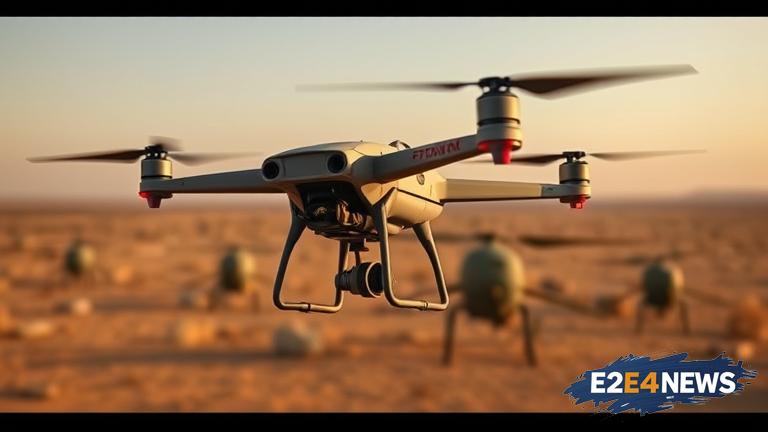The African continent has witnessed a significant surge in the adoption of drones by various militaries in recent years. This trend is largely driven by the growing need for cost-effective and efficient solutions for surveillance, reconnaissance, and combat operations. Unlike their Western counterparts, African militaries are opting for lighter and cheaper drones that can be easily deployed and maintained. These drones are often manufactured in countries such as China, Israel, and the United States, which offer a range of models tailored to the specific needs of African militaries. The use of drones has become increasingly important in Africa, where many countries face security challenges such as terrorism, piracy, and border disputes. In Nigeria, for instance, the military has been using drones to combat Boko Haram insurgents, while in South Africa, drones are being used to monitor the country’s borders and coastlines. Other African countries, such as Egypt, Morocco, and Kenya, are also investing heavily in drone technology. The adoption of drones has several advantages, including reduced costs, increased flexibility, and enhanced situational awareness. Moreover, drones can be used in a variety of roles, from surveillance and reconnaissance to combat and logistics support. However, the use of drones also raises several concerns, including the risk of accidents, privacy violations, and the potential for drones to be used by non-state actors. Despite these challenges, the demand for drones is expected to continue growing in Africa, driven by the increasing need for effective and efficient security solutions. In fact, several African countries are already exploring the use of drones for civilian purposes, such as disaster response, environmental monitoring, and agricultural surveillance. The African drone market is expected to be worth billions of dollars in the coming years, with several international companies already eyeing the continent as a key growth market. As the use of drones becomes more widespread, it is likely that African militaries will continue to play a major role in shaping the continent’s security landscape. Furthermore, the adoption of drones is also expected to have significant implications for regional security dynamics, as countries with advanced drone capabilities may be able to exert greater influence over their neighbors. In addition, the use of drones may also raise questions about the role of external powers in African security affairs, as several Western countries are already providing drone technology and training to African militaries. The growing use of drones in Africa also highlights the need for greater regional cooperation and coordination on security issues, as well as the importance of developing effective regulations and standards for the use of drones. Overall, the shift towards lighter and cheaper drones is expected to have significant implications for African militaries and the broader security landscape, and will likely be a key area of focus in the coming years. The use of drones is also expected to drive innovation and entrepreneurship in Africa, as local companies begin to develop their own drone technologies and services. This could have significant economic benefits, as well as help to reduce reliance on foreign technology. However, it will also be important to ensure that the development and use of drones is carefully regulated, to prevent accidents and ensure that the technology is used responsibly. In conclusion, the adoption of lighter and cheaper drones by African militaries is a significant trend that is expected to continue growing in the coming years. As the use of drones becomes more widespread, it will be important to carefully consider the implications for regional security dynamics, as well as the need for greater cooperation and regulation.
